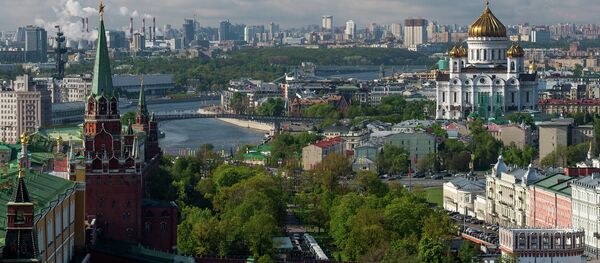PARIS (Sputnik) – European economic sanctions against Russia should be lifted as soon as possible, French government envoy and former presidential candidate Jean-Pierre Chevenement said.
“I think that the weakening of ties between Russia and Western Europe was damaging for everyone,” Chevenement said in an interview with RIA Novosti.
He said that French companies are continuing their business in Russia and hope that the sanctions will be lifted.
“In the end, the lifting of sanctions will happen and the sooner this happens, the better, in my opinion,” Chevenement added.
The Russian authorities have refuted the allegations, warning that the Western sanctions are counterproductive. In response to the Western restrictive measures, in August 2014, Russia announced a food embargo on some products originating in states that imposed sanctions against it.
“It should be said that there is a huge lack of culture [in Europe] and this is where the roots of Russophobia come from that you can see in the media and from some essayists, which, in my opinion, don’t know the question. So I think that this Russophobia is ungrounded because Russia and France are two large European countries that are extremely important for the balance in Europe,” Chevenement elaborated.
Russian, French Positions on Level Before Common Enemy
Russia and France hold the same positions when faced with a common enemy like Daesh, which is prohibited in numerous countries including the United States and Russia, Jean-Pierre Chevenement said.
“Our positions on Syria are undoubtedly coming closer. We know that we have a common enemy, which is Daesh, terrorism, and jihadism.”
Syria has been mired in civil war since 2011, with government forces fighting numerous opposition groups, including the Western-backed allegedly moderate factions, as well as terrorist formations.
"I want to visit Russia in the near future, but the dates have not been determined yet. I will discuss it with our foreign minister, Mr. [Jean-Marc] Ayrault," Chevenement told RIA Novosti.
According to Chevenement, he plans to hold a number of meetings with the "usual interlocutors."
"I would also like to address in part our cultural and education exchange, not only industrial issues, the resolution of which is currently blocked to some extent," Chevenement added.


